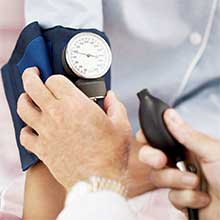Cardiology is the discipline of medicine that specializes in heart disease. After four years of medical school, a physician will spend from six to eight more years in specialized training. A cardiologist is not only board certified in his/her primary specialty, but then must be board certified in their subspecialty.
Your Heart – The Source of Life
Heart disease is the leading cause of death in America. If affects not only men, but women as well. The correct diagnosis, treatment and prevention of cardiovascular disease can truly make the difference between life and death. The most common cardiovascular diseases and conditions are:
Cardiovascular Disease – When arteries that supply blood to the heart or brain become slowly clogged with a build up of cells, fat and cholesterol it is called plaque. With the build up of plaque, heart and blood vessel problems can occur. This could lead to a heart attack or stroke.
Heart Attack – A heart attack is not a disease in itself, but is a result of coronary heart disease. A heart attack can occur when one of the arteries that supply blood to the heart becomes blocked.

Stroke – When blood flow is blocked, preventing oxygen and other vital nutrients to get to the brain, a stroke can occur. Stroke is the third leading cause of death in America and the leading cause in serious disability.
Arrhythmia – When a change or disruption in the “rhythm” of your heartbeat occurs, this is called an arrhythmia.
Congestive Heart Failure – When the heart can’t pump enough blood to meet the needs of the rest of your body’s organs.
The cardiologist has a wide variety of diagnostics available to him/her in order to help determine what the best course of action is for your particular condition. Some of these include but are not limited to: